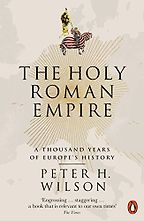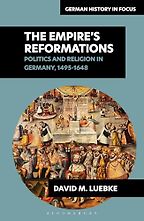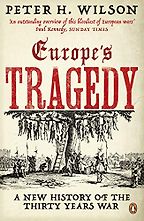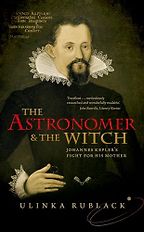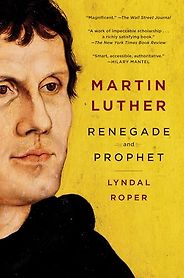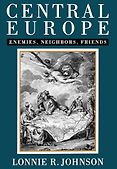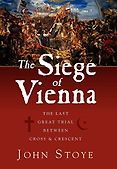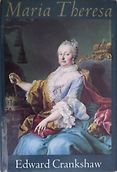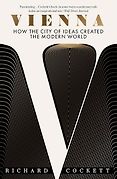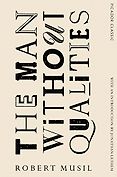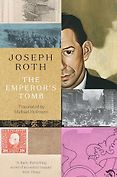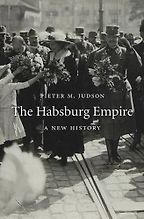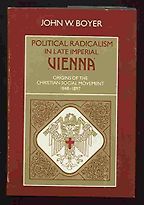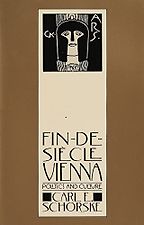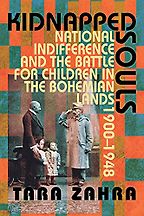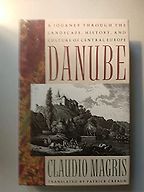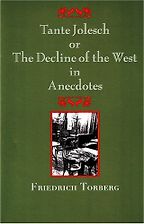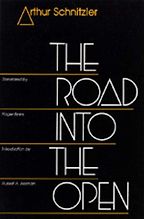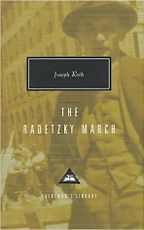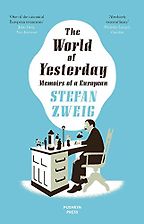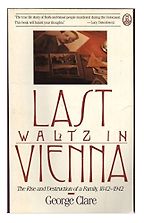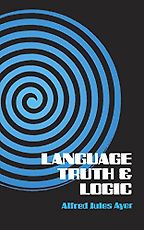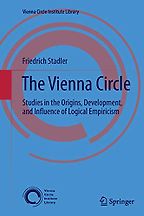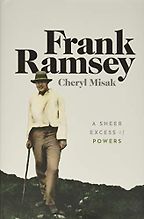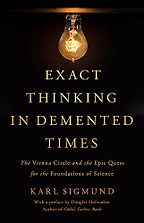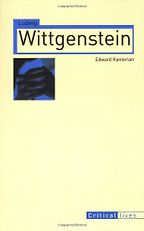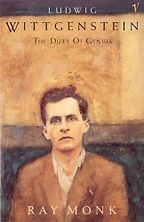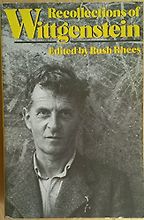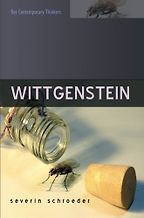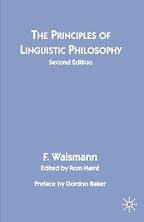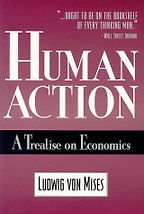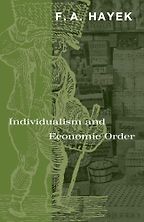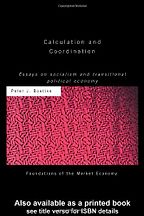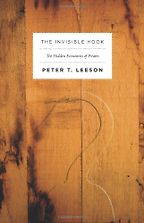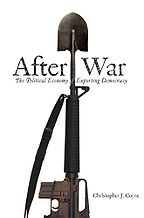Austria Books
recommended by historians, philosophers, and writers
Last updated: January 25, 2026
At its creation as a nation-state in the wake of the First World War, Austria was an odd creation. It was a smallish, land-locked, largely rural country with a capital city, Vienna, that had up until that moment, been the centre of one of the largest and, arguably, most cosmopolitan empires in the world. Our coverage of Austria reflects that incongruity, being entirely dedicated to Vienna and the Viennese.
Even without its empire, in the 1920s Vienna became a global intellectual centre, and was home to many of the people and ideas that shaped the modern world. Novelists recommended on Five Books include Joseph Roth and Stefan Zweig. The journalist and philosopher, David Edmonds, chooses his best books on the Vienna Circle of philosophers, scientists and economists who were devoted to ensuring scientific ideas of empiricism and verification at the heart of all intellectual inquiry. Our other interviews all overlap with that. Brigid Grauman chooses her best books on Jewish Vienna. Peter Hacker looks at the philosopher Ludwig Wittgenstein and Peter Boettke covers the Austrian school of economics.
-

1
The Holy Roman Empire: A Thousand Years of Europe’s History
by Peter H. Wilson -

2
Martin Luther: Renegade and Prophet
by Lyndal Roper -

3
The Empire's Reformations: Politics and Religion in Germany 1495-1648.
by David M. Luebke -

4
Europe's Tragedy: A New History of the Thirty Years War
by Peter H. Wilson -

5
The Astronomer and the Witch: Johannes Kepler's Fight for his Mother
by Ulinka Rublack
The best books on The Holy Roman Empire, recommended by Barbara Stollberg-Rilinger
The best books on The Holy Roman Empire, recommended by Barbara Stollberg-Rilinger
The Holy Roman Empire was a loose confederation of heterogeneous states that lasted a thousand years, from 800 to 1806. In the early modern period, it developed some common institutions, but these failed to contain the forces of disunity. Barbara Stollberg-Rilinger, a professor of history at the University of Münster, recommends books to learn more about an empire that played a key role in European history but is often absent from national narratives.
-

1
Central Europe: Enemies, Neighbors, Friends
by Lonnie Johnson -

2
The Siege of Vienna: The Last Great Trial Between Cross & Crescent
by John Stoye -

3
Maria Theresa
by Edward Crankshaw -

4
Vienna: How the City of Ideas Created the Modern World
by Richard Cockett -

5
The Man Without Qualities
by Robert Musil -

6
The Capuchin Crypt (aka The Emperor's Tomb)
by Joseph Roth
The best books on Austria, recommended by Nicholas Parsons
The best books on Austria, recommended by Nicholas Parsons
Today, the Republic of Austria is a small country in Central Europe, but for centuries, it was the fulcrum of events going on in Europe, as the Habsburgs led the Holy Roman Empire—and later the multi-ethnic Austro-Hungarian Empire—until it all fell apart after World War I. Nicholas Parsons, author of the excellent The Shortest History of Austria, introduces us to books and novels that bring to life the history of a political, intellectual, and cultural powerhouse.
-

1
The Habsburg Empire: A New History
by Pieter M. Judson -

2
Political Radicalism in Late Imperial Vienna: Origins of the Christian Social Movement, 1848-1897
by John Boyer -

3
Fin-de-Siecle Vienna: Politics and Culture
by Carl E. Schorske -

4
Kidnapped Souls: National Indifference and the Battle for Children in the Bohemian Lands, 1900-1948
by Tara Zahra -

5
Danube: A Journey through the Landscape, History and Culture of Central Europe
by Claudio Magris
The best books on The Austro-Hungarian Empire, recommended by Jonathan Kwan
The best books on The Austro-Hungarian Empire, recommended by Jonathan Kwan
The Austro-Hungarian Empire is often viewed as unmanageable in its diversity, and its eventual collapse inevitable. But, as historian Jonathan Kwan explains, it was politically much more robust that people have given it credit for and its capital, Vienna, the most culturally vibrant place in Europe.
-

1
Tante Jolesch or the Decline of the West in Anecdotes
by Friedrich Torberg & Maria Poglitsch Bauer (translator) -

2
The Road into the Open
by Arthur Schnitzler & Roger Byers (translator) -

3
The Radetzky March
by Joseph Roth -

4
The World of Yesterday
by Stefan Zweig & Anthea Bell (translator) -

5
Last Waltz in Vienna
by George Clare
The best books on Jewish Vienna, recommended by Brigid Grauman
The best books on Jewish Vienna, recommended by Brigid Grauman
In the late 19th and early 20th century, Vienna had a vibrant intellectual and cultural life, embraced and at times led by key figures in its large Jewish community. All that would disappear with the rise of anti-Semitism and the Anschluss. Many Jews fled or committed suicide. Others were deported to concentration camps. After the war some went back, but Vienna would never be the same. Here Brigid Grauman, whose father’s family were assimilated Jews from Vienna, recommends books that evoke that poignant, tragic period that ended with World War II.
-

1
Language, Truth and Logic
by AJ Ayer -

2
The World of Yesterday
by Stefan Zweig & Anthea Bell (translator) -

3
The Vienna Circle
by Friedrich Stadler -

4
Frank Ramsey: A Sheer Excess of Powers
by Cheryl Misak -

5
Exact Thinking in Demented Times: The Vienna Circle and the Epic Quest for the Foundations of Science
by Karl Sigmund
The best books on The Vienna Circle, recommended by David Edmonds
The best books on The Vienna Circle, recommended by David Edmonds
Members of ‘the Vienna Circle’ had strong views on what can and cannot be meaningfully said. They’ve had an enormous impact on modern philosophy, partly because the arrival of fascist rule in Austria scattered them around the world. Here, philosopher David Edmonds, author of The Murder of Professor Schlick, introduces us to their ideas, their milieu and the poignant background to their lives and thinking.
The best books on Wittgenstein, recommended by Peter Hacker
A pioneering figure in analytic philosophy, Ludwig Wittgenstein (1889-1951) is a clear example of philosophical genius. A profoundly intense, tortured, and solitary man, he produced two masterpieces of philosophy with fundamentally opposed views of language — both of which have been wildly influential. Peter Hacker introduces us to perhaps the most important philosopher since Kant, and explains why Wittgenstein would be horrified by Noam Chomsky.
The best books on Austrian Economics, recommended by Peter Boettke
The professor of economics discusses the contributions made by the Austrian School. He introduces recent books by Austrians, explains what we can learn from Mises and Hayek, and argues that economics is the sexiest subject.
